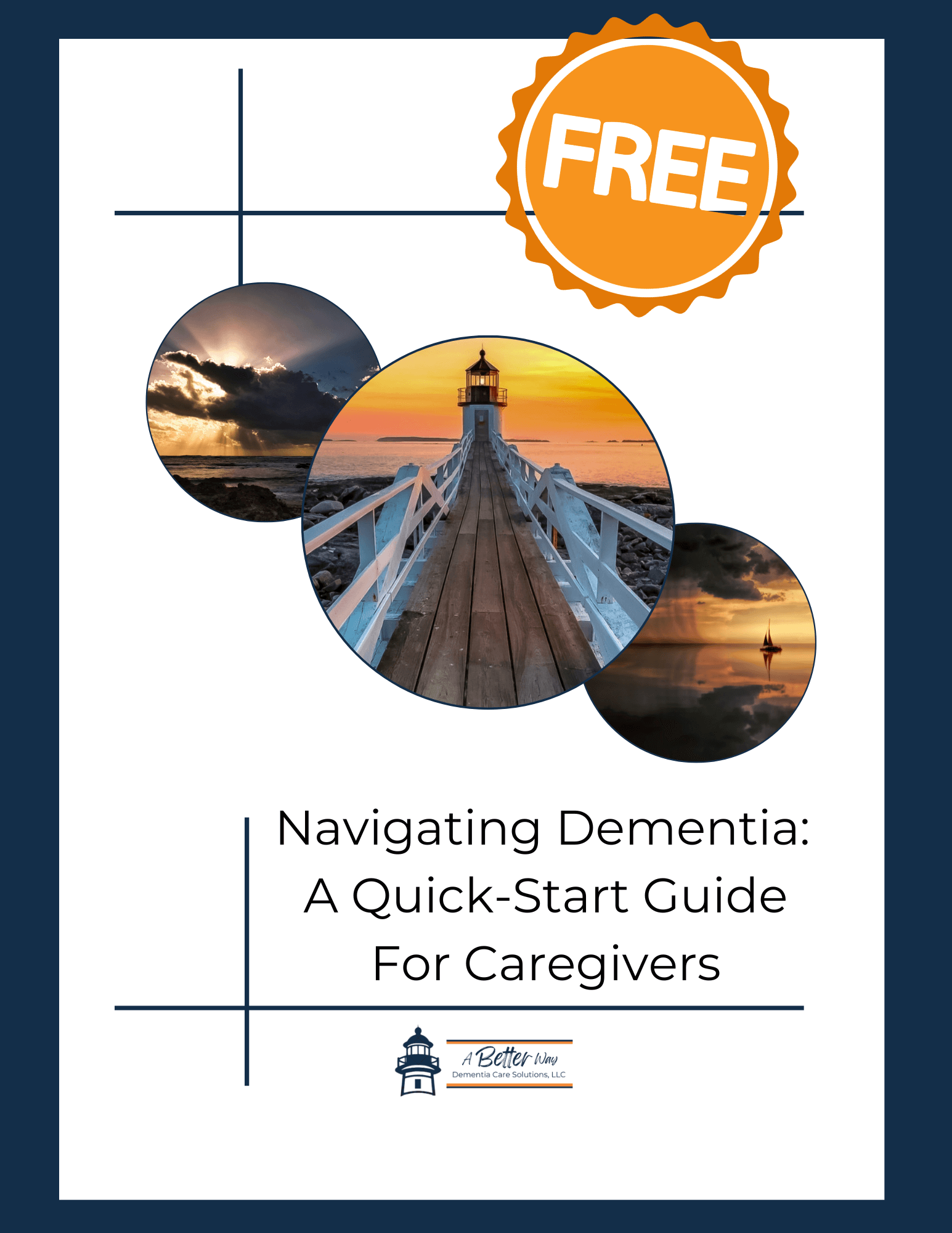
When someone you love is living with dementia, words don’t always come easily- for them or for you. But connection doesn’t depend on conversation. In fact, some of the most meaningful moments you’ll share might come through a quiet smile, a gentle hand on theirs, or the comfort of just being together in silence.
Nonverbal communication- body language, facial expressions, gestures, touch- is a beautiful way to stay connected when words fall short. It can build trust, ease frustration, and remind both of you that love is still there, even when language fades.
Here’s what’s helped me and so many others- maybe some of these ideas will help you too.
1. Look Them in the Eye and Offer a Smile
Sometimes, all it takes is eye contact and a warm smile to say, “I see you. I’m with you.” Even if they can’t fully understand what you’re saying, your presence speaks volumes.
Try this: Approach slowly from the front, meet their eyes, and smile gently before you say anything. It sets a peaceful tone.
2. Let Touch Say What Words Can’t
A light touch- a hand on their back, holding their hand- can be incredibly comforting. Of course, only if it feels okay to them. Some people love touch, and others don’t, so go gently and follow their lead.
What’s worked for me: Just sitting close and holding hands can feel like a deep conversation without a single word.
3. Let Your Body Match Your Heart
We don’t always realize how much we “say” with our posture or facial expressions. If your words are kind but your body is tense, they might feel that tension too.
Try this: Uncross your arms, relax your shoulders, and slow things down. Let your body reflect the calm and care you want to share.
4. Use Your Hands to Show What You Mean
Simple gestures go a long way. Pointing, guiding, or demonstrating can help make things clearer when words get tangled.
For example: Instead of saying “Sit down,” gently pat the chair and smile. That small cue can make all the difference.
5. Give Them Space to Feel Safe
Standing too close or suddenly moving into their space can feel overwhelming. Watch how they respond and adjust as needed.
A gentle reminder: Try to be at eye level instead of standing over them- it feels more respectful and less intimidating.
6. Watch for the Cues They’re Giving You
Even if they can’t tell you how they feel, their body might. Restlessness, facial expressions, or pulling away can be signs they’re uncomfortable, tired, or in pain.
A few things to look for:
- Fidgeting or pacing might mean they’re anxious or need the bathroom.
- Turning away or avoiding eye contact could be their way of asking for space.
- Grimacing or frowning might mean something hurts. Your gentle attention can make them feel seen and safe.
7. Let Art and Music Speak
When words are hard to find, creativity can be a lifeline. Drawing, singing, listening to music, or looking at old photos can unlock joy and connection.
One of my favorite things: Singing an old favorite song together. It often brings a smile- even when not much else does.
8. Soothing Sounds Can Do So Much
A calm voice, soft humming, familiar phrases- they all carry emotion and reassurance. Sometimes, it’s more about how something is said than what is said.
Try saying: “You’re safe. I’m here.” It’s a simple phrase that brings comfort, even if they can’t respond.
9. Meet Them Where They Are
Every stage of dementia is different. Early on, subtle cues might be enough. Later on, they might need bigger gestures or more hands-on reassurance.
What matters most: Stay flexible. You’re learning together- and your presence is what they’ll feel most.
10. Slow Down and Give Them Time
It’s easy to forget how long it can take to process things when your brain is working differently. Try to resist the urge to fill the silence or rush the moment.
Pause. Breathe. Smile. Give them space.
Sometimes, a few quiet seconds can open a new door between you.
Just Remember…
Words may fade, but your love doesn’t. You’re doing something extraordinary- staying close, staying kind, and finding new ways to communicate when it gets hard. That’s real connection. That’s real caregiving.
Need More?
Join Our Private Caregiver Community
If you're looking for a safe space to share your caregiving experiences, ask questions, or simply connect with others who understand the challenges you face, join our private Facebook support group for caregivers. It's a supportive, empathetic community where you can find encouragement and answers when you need them most. Click here to join.
Subscribe to Our Newsletter
For more valuable tips, resources, and updates on dementia care, click here to subscribe to our newsletter today!
Notes:
- Alzheimer's Association. (n.d.). Dementia communication: Responding to false statements. Retrieved from https://www.alz.org/help-support/caregiving/daily-care/communications
- Klein, B. (2023). The validation method in dementia care: Communicating with empathy. Verywell Health. Retrieved from https://www.verywellhealth.com/validation-method-for-dementia-98590
- National Institute on Aging. (2021). Tips for communicating with a person with dementia. Retrieved from https://www.nia.nih.gov/health/communicating-person-dementia
- Teepa Snow. (n.d.). Responding to unmet needs in dementia care. Positive Approach to Care. Retrieved from https://teepasnow.com
- Mayo Clinic. (2023). Dementia care: Understanding changes in communication. Retrieved from https://www.mayoclinic.org/healthy-lifestyle/caregivers/in-depth/dementia-care/art-20047452
- Harvard Health Publishing. (2021). Therapeutic fibbing: When “lying” is kinder than telling the truth. Retrieved from https://www.health.harvard.edu/blog/when-fibbing-is-the-kindest-choice-in-dementia-care-2021012521885
Want to keep figuring this out together?
Subscribe to Finding Our Way in Dementia Care and get honest stories, helpful tips, and gentle support delivered to your inbox every week. Just real talk, grounded care, and space to breathe.
Subscribe to Finding Our Way in Dementia Care and get honest stories, helpful tips, and gentle support delivered to your inbox every week. Just real talk, grounded care, and space to breathe.
Kind truth. Clear steps. Warm guide.

















0 Comments